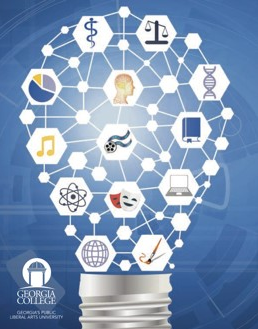Building Civic Capacity Through a Collaborative Citizens Academy
Abstract
In partnership with our local library, this paper evaluates the process and outcomes related to a collaboration between a local university and a local library, through the work of a sociology undergraduate student, in her position as an employee of the local public library. This collaboration involves the planning, execution, and evaluation of a citizens’ academy. Citizens Academies are educational programs conducted by various stakeholders (often local police departments, but also regional or national non-profits, local governance organizations. As Reid says, “…community engagement can help both schools and libraries understand the needs and values of the community; it can foster the growth of social networks that can result in increased educational achievement; it increases active citizenship as well as levels of trust and cooperation, and it ensures that policies are understood and accepted as fair.” (Reid, p.189). As members of the community with a vested interest in effective governance, including a commitment to libraries themselves, the authors sought and obtained approval from the local library staff to develop, implement, and evaluate a civic education program in partnership with the library. The goals of the program include increased civic knowledge, increased civic engagement and political participation, and increased sense of efficacy among participants to positively impact their communities. The program structure and topics will include local government structure, city and county positions, and responsibilities, as well as funding, and concluding with information about running for office. Expected outcomes of this program would be for the participants to gain more knowledge on how their local government and town operates. At the end of the course the participants will be asked to complete an online survey and give feedback, the program aims to bring together adults of varying ages to have positive and informative discussions on situations and institutions that impact us all.
Building Civic Capacity Through a Collaborative Citizens Academy
In partnership with our local library, this paper evaluates the process and outcomes related to a collaboration between a local university and a local library, through the work of a sociology undergraduate student, in her position as an employee of the local public library. This collaboration involves the planning, execution, and evaluation of a citizens’ academy. Citizens Academies are educational programs conducted by various stakeholders (often local police departments, but also regional or national non-profits, local governance organizations. As Reid says, “…community engagement can help both schools and libraries understand the needs and values of the community; it can foster the growth of social networks that can result in increased educational achievement; it increases active citizenship as well as levels of trust and cooperation, and it ensures that policies are understood and accepted as fair.” (Reid, p.189). As members of the community with a vested interest in effective governance, including a commitment to libraries themselves, the authors sought and obtained approval from the local library staff to develop, implement, and evaluate a civic education program in partnership with the library. The goals of the program include increased civic knowledge, increased civic engagement and political participation, and increased sense of efficacy among participants to positively impact their communities. The program structure and topics will include local government structure, city and county positions, and responsibilities, as well as funding, and concluding with information about running for office. Expected outcomes of this program would be for the participants to gain more knowledge on how their local government and town operates. At the end of the course the participants will be asked to complete an online survey and give feedback, the program aims to bring together adults of varying ages to have positive and informative discussions on situations and institutions that impact us all.


